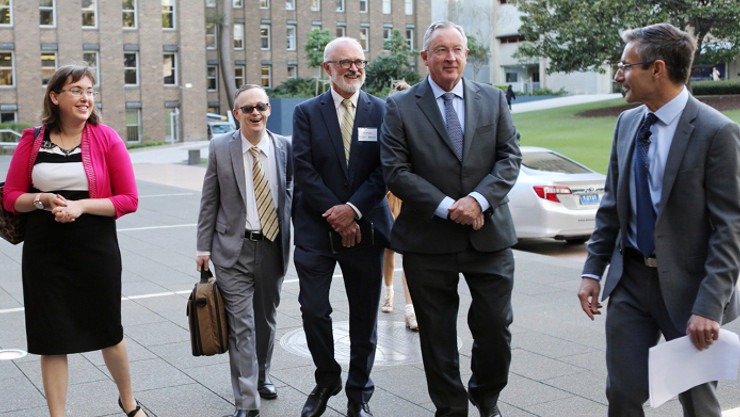
Call for action on the mental health of people with intellectual disability
How can we improve the mental health of people with intellectual disability? Key recommendations have just been released by a group of experts that has been working on the issue since 2013.
“The standard of mental health care for most people with intellectual disability at the moment borders on neglect.” – Michel Sullivan, CID vice-chair.
There is strong evidence from people with intellectual disability and their families – and from academic research – that people with intellectual disability have high rates of mental illness but very poor access to good mental health care.
The National Roundtable on the Mental Health of People with Intellectual Disability has just released a communique outlining ideas on how to improve the mental health of people with intellectual disability.
- Read the communiqué (in standard English and Easy Read)
Recommendations for action include:
- Requiring intellectual disability mental health issues to be taught in university health and disability courses.
- Building capacity and skills in Local Health District mental health services to address the mental health of people with intellectual disability.
- Including health input into National Disability Insurance Scheme (NDIS) pre-planning and planning.
- Including mental health in national standards for disability services.
- Creating ongoing links between state and federal datasets to enable the examination of mental health outcomes and service use for people with intellectual disability.
- Requiring all state and territory mental health plans to address inclusion of people with intellectual disability.
About the National Roundtable
The National Roundtable on the Mental Health of People with Intellectual Disability was led by Professor Julian Trollor and his team from UNSW in collaboration with CID.
The second Roundtable, held in 2018, was attended by over 100 leaders in mental health, disability and government from around Australia.
In an opening address at the Roundtable, CID vice-chair Michael Sullivan said:
“People with intellectual disability are very often treated as if we are nobodies. As if we are invisible. The standard of mental health care for most people with intellectual disability at the moment borders on neglect.”
At the Roundtable, CID Senior Advocate Jim Simpson noted that progress has occurred since 2013, when the first Roundtable was held. Jim went on to say:
“The core challenge today is to get into the fabric of mainstream mental health thinking so that, day by day, mental health professionals and planners are thinking: ‘how do we ensure our initiatives and services are accessible and appropriate for people with intellectual disability?’.
View all the speeches on our Youtube channel.
Find out more
- Read the communiqué (in standard English and Easy Read)
- A Pathway Through Complexity, our report on how we can make sure the NDIS will work for people with intellectual disability and complex behaviour support needs. Also available in Easy Read.



 1800 424 065
1800 424 065 














